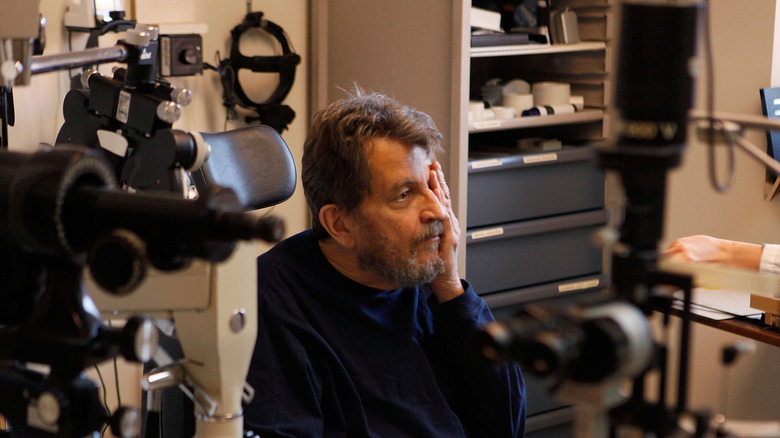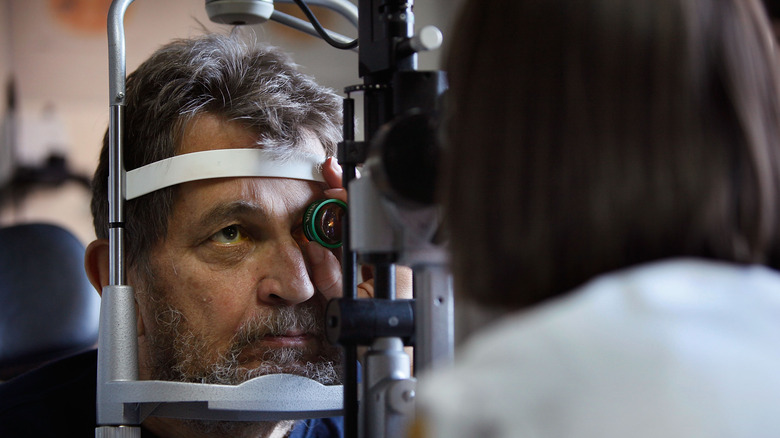The Different Types Of Macular Degeneration
Macular degeneration is a disease that affects the macula, which is the central area of the retina. There are two types of macular degeneration: dry and wet (via Everyday Health). Dry macular degeneration is the most common type of macular degeneration. It occurs when the cells in the macula break down and stop working properly. Over time, this can lead to a loss of central vision.
Wet macular degeneration is less common than dry macular degeneration, but it is more serious. Wet macular degeneration occurs when abnormal blood vessels grow under the retina and leak fluid or blood. This can cause severe vision loss and even blindness. There is also a third type of macular degeneration called Stargardt Disease. This is a rare, inherited form of macular degeneration that typically affects children and young adults. It causes a loss of central vision due to the deterioration of the macula. If you have macular degeneration, it is important to see an eye doctor regularly so that your condition can be monitored and treated if necessary.
What to know about macular degeneration
Macular degeneration affects the macula, which is the part of the eye responsible for central vision. It usually occurs in older adults and can lead to vision loss. Symptoms of macular degeneration may include difficulty seeing fine details or colors, trouble reading or doing other close work, and an increased sensitivity to glare (via Johns Hopkins Medicine). Macular degeneration is caused by a combination of genetic and lifestyle factors. There are some risk factors that can increase your likelihood of developing this condition, including smoking, high blood pressure, and a diet high in saturated fat.
Treatment typically involves lifestyle changes and, in some cases, medication or surgery. If you have macular degeneration, it's important to see an eye doctor regularly and to take steps to protect your vision, such as wearing sunglasses and avoiding smoking. With early detection and treatment, you can help slow the progression of the disease and improve your vision.


